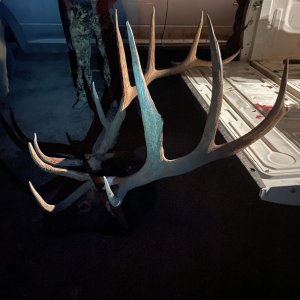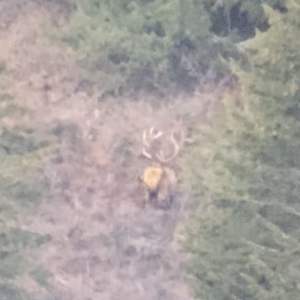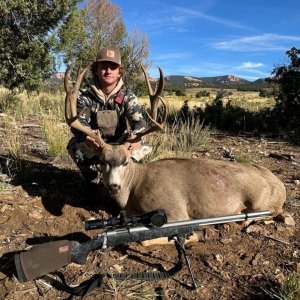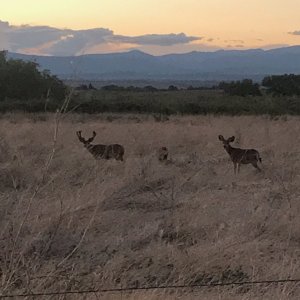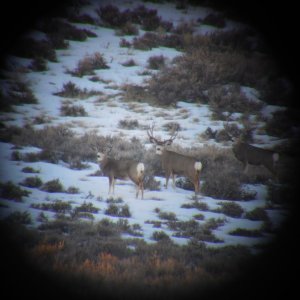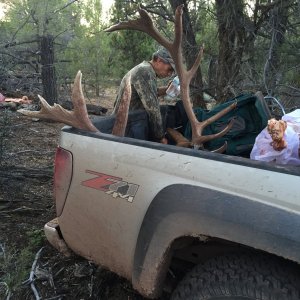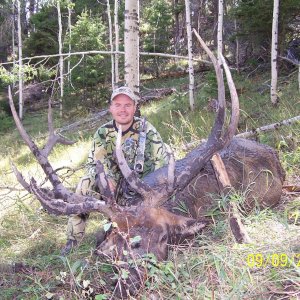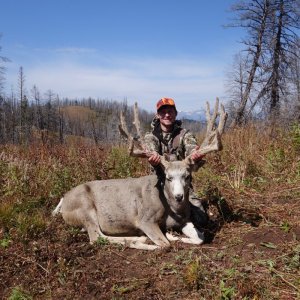http://www.canoe.ca/NewsStand/Columnists/Calgary/Bill_Kaufmann/2005/04/04/981759.html
R-CALF points finger north while ignoring U.S. failings
By Bill Kaufmann -- Calgary Sun
At the other end of the phone line was public enemy No. 1 to thousands of Canadian beef producers.
Leo McDonnell, the head honcho of much-loathed R-CALF USA was told of the villainous reputation his group's cultivated on both sides of the border, not that he needs a reminder.
"It's interesting how that works," says rancher McDonnell, in a soft Montana drawl from his home in Columbus, Mont.
His group has inspired a Canadian cottage industry churning out middle-fingered bumper stickers telling R-CALF where it can go graze, but McDonnell is unfazed.
Canada and its ranchers are their own worst enemies, he calmly insists, and hypocrites to boot. "What R-Calf is asking for is what every other country asks of countries with BSE," he says, no doubt alluding to Canada's ban on beef from mad cow-tainted Japan.
By attempting to fast-track the opening of the U.S. border to their product, Canadian lobbyists have unwittingly slowed the process, says McDonnell, without a hint of irony.
And with the embargo approaching its third year, McDonnell's definition of fast-tracking is mighty flexible.
R-CALF's so far successful legal ploy to halt Canadian livestock in its hooves really is about the safety gap according to the best science there is, he insists.
"(The Canadians) talk a lot about it, but they never put their facts on the table," says McDonnell, without noting a Harvard study has backed up Canada's scientific position.
Canada's yet to adopt international food safety standards meeting R-CALF's expectations, he says, though he also acknowledges the U.S. hasn't, either.
It tends to undermine his group's central argument, that pristine U.S. herds are threatened by those from Canada.
That millions of Canadian cattle were imported into the U.S. prior to May, 2003 is no big deal, either, says McDonnell.
Canadian herds have been more exposed to riskier European cattle over the years, he argues, while forgetting the brisk North American trade in millions of those same animals.
In February 2004 a letter to the U.S. Department of Agriculture from Republican Tom Davis and Democrat Henry Waxman took to task the efficiency of America's internal surveillance for BSE.
The two politicians questioned why testing is only done on so-called downer animals when the disease could be present in cattle without those symptoms.
The letter received more attention in Japan than in the U.S.
The U.S. Food and Drug Administration admitted in 2001 that a third of the nation's 10,000 feedplants were not inspected due to a shortage of personnel.
A USFDA memo predicted any tightening up of the country's regulations would be too late to head off any existing BSE.
All of this can't help but lead to the realization R-CALF are simply protectionists more interested in their own hides than scientific virtue.
Last week, Cuba ended its ban on Canadian livestock. If safety's a red herring, R-CALF can always use that Cuban connection as a reddish incitement to keep the border shut.
It'll be their freedom meat versus Canadian treason beef.
"People resort to name-calling when they're not supported by the facts," responds McDonnell to the protectionist tag.
He's reminded legions of his American cattle brethren raise the same protectionist charge, particularly processors.
A U.S.-based science/consumers' group has issued a report stating commerce, not safety, is behind the R-CALF stand.
American packers are moving their operations north, say Canadian cattle producers, who barely conceal their grim satisfaction when relaying the news.
McDonnell says it's all a ploy to dump "artificially cheap" Canadian beef onto U.S. markets. "They've got quite a little scam going," he says.
Never mind it's R-CALF's own actions that are perpetuating those lower Canadian beef prices and the "scam."
And what about those wily R-CALF members who bought up cattle north of the border after the ban?
A month ago, McDonnell admitted as much, saying, presumably with a straight face, "I don't see anything ironic about it."
Last week, he insisted those purchases were only made prior to May, 2003, apparently having gotten his talking points right.
"It doesn't make sense to buy when things are low," he says, definitely not making much sense with economics 101.
"I know one of our people who lost a quarter of a million dollars on those cattle."
As they'd say down in dry gulch, "cry me a river."




